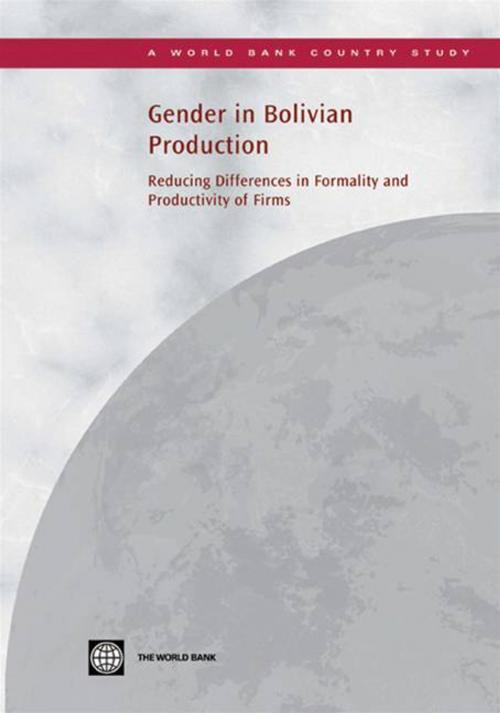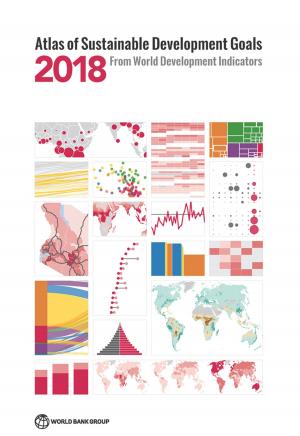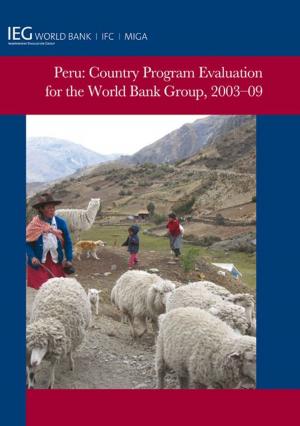Gender In Bolivian Production: Reducing Differences In Formality And Productivity Of Firms
Nonfiction, Social & Cultural Studies, Social Science, Gender Studies| Author: | Sakho Yaye; Lunde Trine; Arribas-Banos Maria | ISBN: | 9780821380147 |
| Publisher: | World Bank | Publication: | August 21, 2009 |
| Imprint: | Language: | English |
| Author: | Sakho Yaye; Lunde Trine; Arribas-Banos Maria |
| ISBN: | 9780821380147 |
| Publisher: | World Bank |
| Publication: | August 21, 2009 |
| Imprint: | |
| Language: | English |
Bolivia's informal economic sector is the largest in Latin America, and women-owned businesses tend to be overrepresented in the informal sector and to be less profitable than firms in the formal sector. This study seeks to better understand gender-based differences in firms' tendencies toward formality, the impact of formality on profits, and the productivity of small informal firms. Using data from firm surveys, national household surveys, and qualitative data from focus groups, the study conducts a gender analysis of formality and productivity in six different sectors in Bolivia. The findings shed new light on how gender-based differences contribute to a firm's decision to become formal and the consequences of this decision for profitability. The outcomes of the study suggest that policies should focus on increasing the productivity and scale of women-owned businesses. Two general priorities emerge: promoting women's access to productive assets to facilitate growth and productivity and providing an enabling environment for women's entrepreneurship by expanding women's choices and capacity to respond to market opportunities.
Bolivia's informal economic sector is the largest in Latin America, and women-owned businesses tend to be overrepresented in the informal sector and to be less profitable than firms in the formal sector. This study seeks to better understand gender-based differences in firms' tendencies toward formality, the impact of formality on profits, and the productivity of small informal firms. Using data from firm surveys, national household surveys, and qualitative data from focus groups, the study conducts a gender analysis of formality and productivity in six different sectors in Bolivia. The findings shed new light on how gender-based differences contribute to a firm's decision to become formal and the consequences of this decision for profitability. The outcomes of the study suggest that policies should focus on increasing the productivity and scale of women-owned businesses. Two general priorities emerge: promoting women's access to productive assets to facilitate growth and productivity and providing an enabling environment for women's entrepreneurship by expanding women's choices and capacity to respond to market opportunities.















